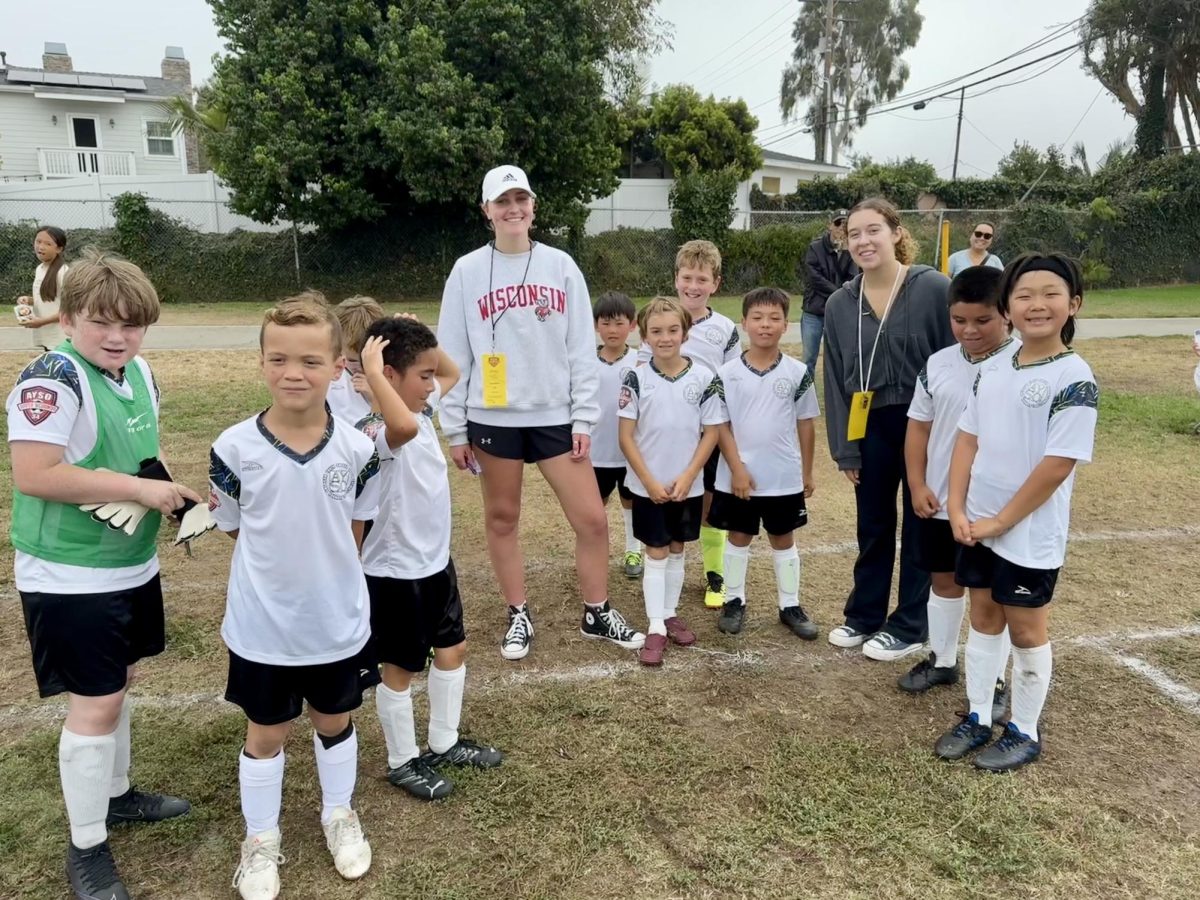Seeing that they’re bringing joy to the boys through the boys’ smiles and excitement in games and practices, seniors Carly Arthur and Petra Napier are motivated in coaching and leading a youth, all-boys soccer team.
“Soccer for me has always been a calm place and acts as my therapy. I think coaching has that same role. Even if I’ve had a really terrible day, I try to remember that for these kids, I don’t know what happens other than [what goes on] at practice,” Arthur said. “So I just try to be my best version of myself and it’s only an hour that I have to ‘act’ and then after that, I can return to my normal life and worry about everything else. It’s not really a possibility to just stop showing up, and I can tell they look forward to the practices because they get to see their friends and use up some of their energy so that’s what keeps me going.”
Inspired by a friend who also coached a youth soccer team, Arthur and Napier began coaching their own team at the end of July under the American Youth Soccer Organization (AYSO), where they also play on a team. Coaching 10 second to fourth grade boys, ranging in skill level, Arthur and Napier prepare plans for practices and refine the boys’ skills for upcoming games.
Transitioning from player to coach, Napier has developed a newfound understanding of coaches’ dedication and mindset.
“I didn’t realize all the time and preparation it took to make the lineup, figure out practices, all while also keeping them entertained. We have to do things that would work on skills, but are also fun for them, which all adds another level of difficulty,” Napier said. “Then if people don’t show up, we have to change the whole schedule we worked on for so long. I’ve definitely grown appreciative of coaches and have gained respect for them.”
Boys not passing the soccer ball, friendship cliques forming within the team, no one listening, and boys being disruptive are just a few of the challenges Arthur and Napier face when coaching. Despite the difficulty of adjusting to the transition, Napier and Arthur’s strong friendship allows for smoother communication without needing to, as Arthur said, “walk on eggshells” as they would with a stranger.
Coach of Carly and Petra’s AYSO team, Chris Otey, adds that communication helps them “pass on what they learned from soccer to the next generation.”
“On the field when they’re playing for me, they communicate so well, which [translates over] to them being able to communicate with each other about the kids,” Otey said. “It’s important for them to coach because the kids that they’re coaching can relate to them better than the adults who would normally coach them. They were just recently at that age. They’re not as competitive [as adults] and not as strict with the kids. Happy kids play better than stressed-out kids.”
Despite having a strong connection to the kids due to them being teens, the two still did several additional online and in-person training courses focusing on topics like concussion and assaults. Spearheading the team (White Cobras), Napier and Arthur not only have the responsibility of enhancing the boys’ technical soccer skills, which they learned in training and from prior knowledge, they are also in charge of creating a team with a camaraderie spirit.
“We always do these games where you have to work with a partner or your team because some of the kids are more focused on themselves and don’t like to pass [the ball]. We’re really trying to make sure that we adjust the games that we play to expand their skills in that way,” Napier said. “So, the kids who are just focusing on dribbling and running past defenders have to focus on passing with other kids. And then we always do these talks at the end of practice like ‘What did we work on today? And what do we need to focus on?’ That sportsmanship always comes up and we talk about that a lot.”
In unifying a team, Napier and Arthur have taken on this new responsibility that can be “stressful at times” when balancing their busy schedules of academics and extracurriculars, but in the end, they are motivated by seeing the progress little by little.
“There’s this one kid who does not like to pass, but he loves midfield and you need to pass a lot in midfield. I tried to teach him different ways to pass,” Arthur said. “Then I told him ‘if you don’t pass, you’re coming to defense,’ which he hates. So in games, whenever he’d pass, he’d look over at me and be like ‘you saw that?’ He started passing a lot more, so I found it really cool to see their success and improvement build-up, which has helped me continue on with coaching knowing we are making an impact.”




